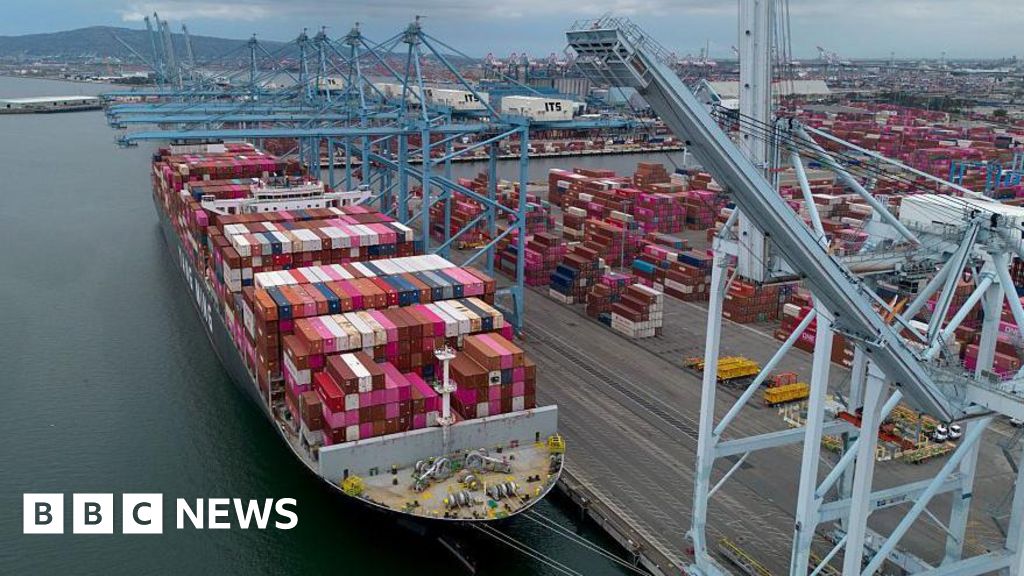ARTICLE AD BOX
 Image source, Getty Images
Image source, Getty Images
UK debt is on an "unsustainable path" unless spending is tightened and taxes are raised, the government's independent forecaster has warned.
The Office for Budget Responsibility (OBR) said soaring energy prices and pressures from an ageing population risked tipping the UK into a recession.
It forecast debt levels could more than treble in 50 years' time.
High inflation is driving up interest payments. In May they hit £7.6bn, the highest level for that month on record.
The figure was a £3.1bn jump from a year earlier.
In its fiscal risks and sustainability report, the OBR said the government had already spent as much this year, 1.25% of GDP, to help households cope with the cost-of-living crisis as it did supporting the economy through the 2008 financial crisis.
The OBR said bringing debt back to 75% of GDP, the level at which it stabilised in the government's pre-pandemic March 2020 Budget, "would need taxes to rise, spending to fall, or a combination of both".
"The pressures of an ageing population on spending and the loss of existing motoring taxes in a decarbonising economy leaves public debt on an unsustainable path in the long term," the OBR said.
The government has pledged to ban the sale of new petrol and diesel-powered cars from 2030. Fuel duties are currently a big source of tax revenue.
The OBR said the Ukraine war, soaring energy prices and long-term pressure on the nation's finances "add up to a challenging outlook for this and future governments as they steer the public finances through inevitable future shocks".
"Many threats remain, with rising inflation potentially tipping the economy into recession, continued uncertainty about our future trading relationship with the EU, a resurgence in Covid cases, a changing global climate, and rising interest rates all continuing to hang over the fiscal outlook," it said.
Households are currently being hit by higher fuel, food and energy costs. Prices are rising at their fastest rate for 40 years, with inflation at 9.1%.
It has led to many people cutting back on spending, especially on food and car journeys, according to a BBC-commissioned survey.
It has also fuelled fears that the UK could fall into recession - defined as the economy getting smaller for two consecutive three-month periods - after the economy shrank in March and April.
But the OBR said the current energy price woes may not be as bad as that seen in the 1970s.
"While the oil crises of the 1970s saw global energy prices rise by a similar magnitude as we have seen in the wake of the pandemic and Russian invasion of Ukraine, there are reasons to believe that the overall impact on inflation, output, and unemployment will be less severe and less persistent this time around," it added.

 2 years ago
36
2 years ago
36








 English (US) ·
English (US) ·